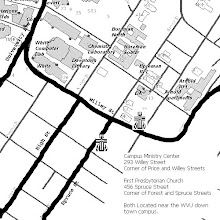Early Christians – counter cultural; left jobs if inconsistent with the Way, left possessions, left family and friends; see Acts 2: 37 – 27 ; 4:32-37
Weren’t trying to overthrow or reform empire; but they also weren’t going along with it. They were not reformists offering the world a better Rome. They offered the dissatisfied masses not a better government but another world altogether. In a world gone respectably insane, Christians, as they lived God’s kingdom, embodied revolutionary subordination toward the kingdoms of the world, exemplified in the suffering humiliation of the crucified Messiah, the slaughtered Lamb who exposed the greed and violence of the world as he died naked on the cross. (p. 160)
Constantine and Empire, year 312, has a vision and hears a voice, “In this you will conquer” painted white crosses on the shields, passed an edict of tolerance. . . years later Christianity becomes the state religion by Theodosius (in a few hundred years the church went from being exterminated by the state to being embraced) – destroying other religion’s temples and killing pagans quickly ensued, church went from persecuted to persecutors
Still trying to be set apart: Nicene Creed: “We believe in one Lord Jesus Christ, the only Son of God”
Another “exodus” – during Constantine people headed for the desert Benedictines; during Crusades, Franciscans, Clares, Dominicans; Reformation, Moravians and Anabaptists
1600s – Conquistadors in North America; religiously inspired settlers, aimed to be solely revolutionary by creating a competing state that would exist on the world’s terms of power and violence . . . seized land to colonize (p 173)
Empire and Christianity increasingly connected – esp in the concept of the United States as the new Israel
When Christianity was baptized by empire . . . it was not just violence and war that became acceptable in the Christian mind, but also radical changes in lifestyle and economics (p. 188)
“And so, if we recognize that the empire of violence and nationalism has crept into the church, we must also recognize that the economic and ecological destruction of God’s creation has come along with it.” (p. 193)
Wednesday, November 5, 2008
Subscribe to:
Post Comments (Atom)

No comments:
Post a Comment